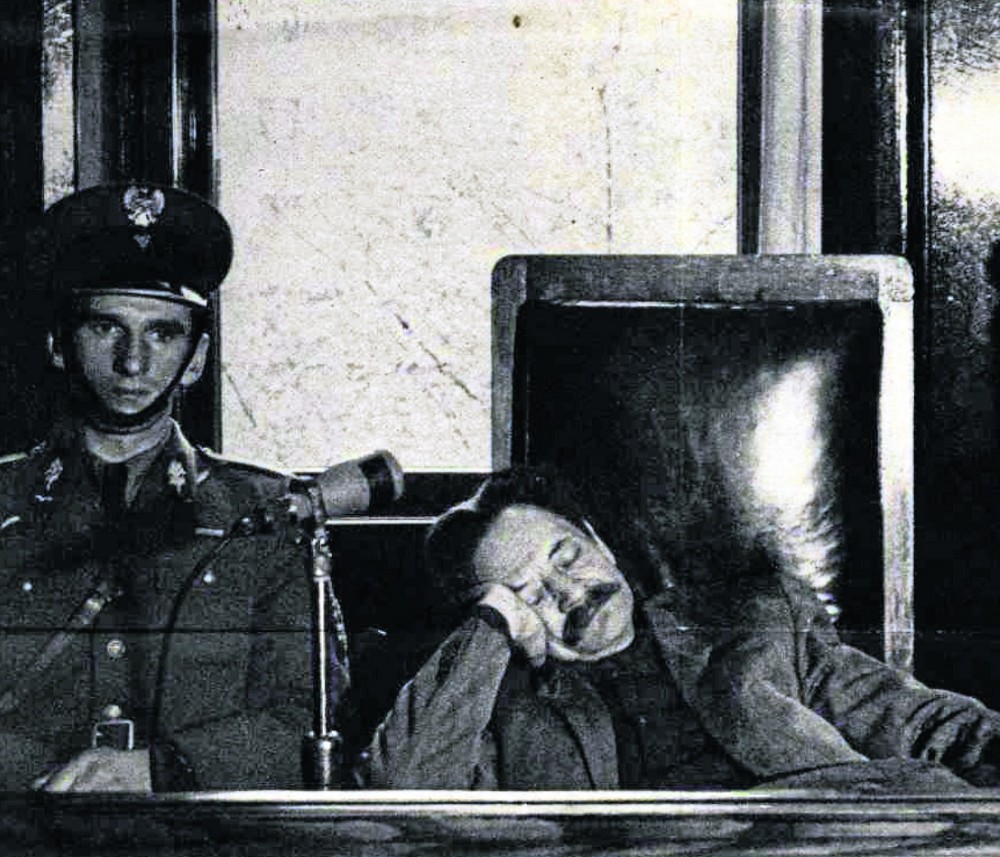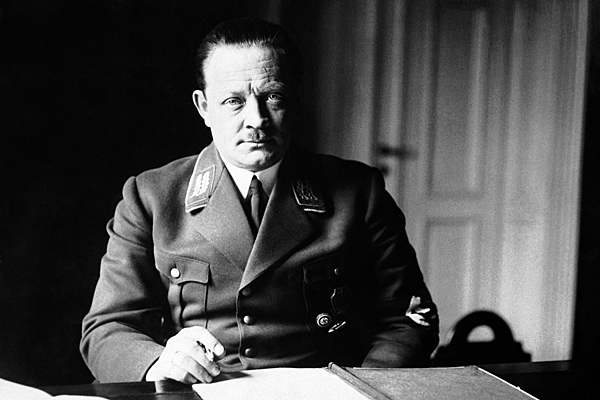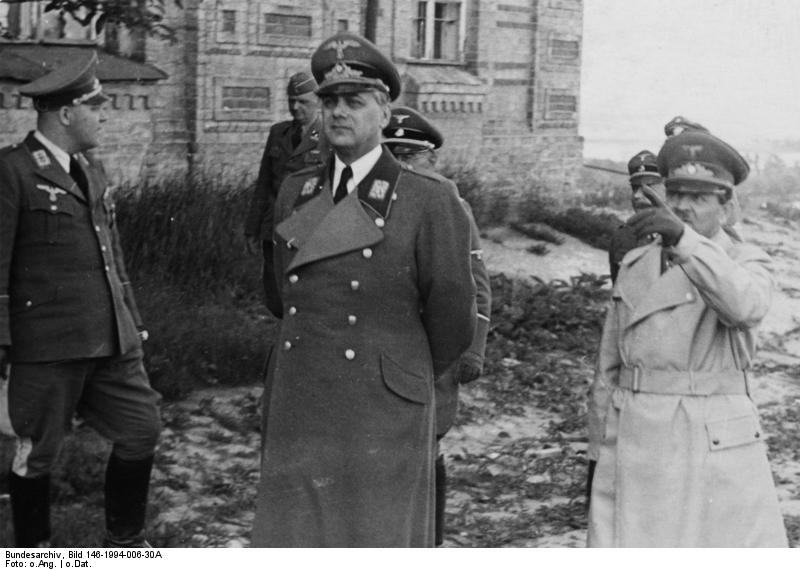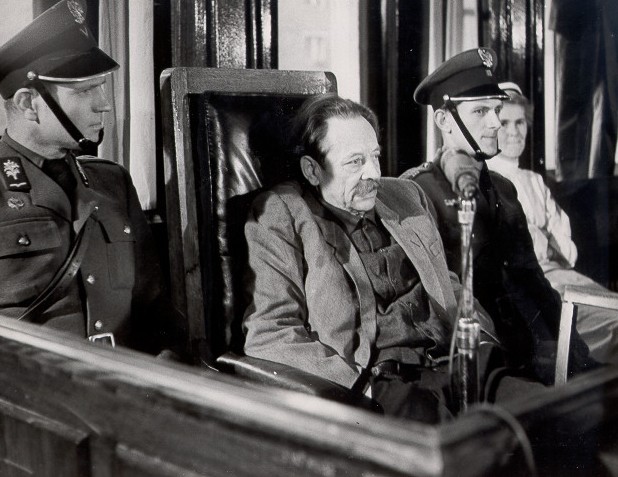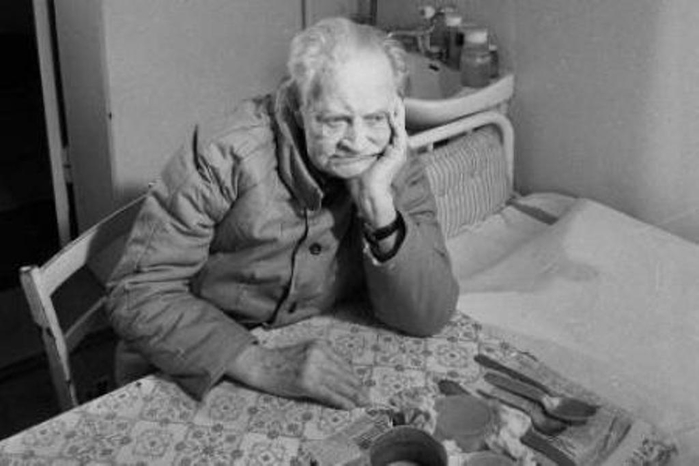That the Soviets and the Nazis cooperated even before the Molotov-Ribbentrop Pact and that Stalin and Hitler were allies between 1939 and 1941 are well known, but that Stalin interceded to save the life of Hitler’s notorious gauleiter in Ukraine and that Erich Koch was not executed but died in a Polish prison at the age of 90 in 1986 is not.
In an essay on Russian7.ru this week, Sergey Zotov
directly asks the question “why did Stalin save Erich Koch, the Reichskommissar of Ukraine?” -- a question that has acquired greater interest and urgency given Vladimir Putin’s military intervention in that country over the last year.
Koch is still remembered in Ukraine for two of his more outrageous comments and for the actions he took to implement his words sending approximately four million people to their deaths. He said that he needed to create a situation in which “when a Pole meets a Ukrainian, he kills the Ukrainian and conversely the Ukrainian kills the Pole. We don’t need Russians, Ukrainians or Poles; we need fertile land.”
And the Nazi leader also said that in his view Ukrainians so hated Russians that in support of the idea of a Ukrainian state, “they are ideal fighters against the Red Army” but after the latter is defeated, they must be subject to complete annihilation “as the most horrible barbarians.”
Koch served as Reichskommissar over Ukraine for the entire time German forces were there. He made his capital not Kyiv but Rivne, and he set the borders of his region, “according to Rosenberg’s plan,” as ranging between Western Ukraine including Galicia to Saratov and Volgograd in the east.
“Known for his harsh manner,” Zotov writes, “Koch was called ‘a second Stalin’ among the Germans,” not an inappropriate description for someone who sent to their graves four million people.
During the war, he was targeted by Soviet partisans for execution, but he escaped all such attacks; and at the end of the war, Koch had relocated to East Prussia from which he took a ship to Copenhagen from which he wanted to travel to Latin America via a German submarine. But his plans to do so came to nothing.
As a result, after the war, he sought to hide near Hamburg under the name of Rolf Berger, but at meetings of refugees, Zotov says, Koch showed himself to be too gifted an orator for someone in the position he sought to present himself as and was arrested by the British occupation authorities.
The British handed Koch over to the Soviet occupation authorities in 1949, but “the USSR refused to judge the former Gauleiter and Reichskomissar and decided to hand him over to Poland.” There he was tried, found guilty and sentenced to death. But Zotov says, that sentence was never carried out. Instead, he was given life imprisonment.
“Neither the USSR nor the Ukrainian SSR ever asked Poland to extradite him or challenged” Warsaw on its failure to execute him, Zotov says. “What was the reason?”
One explanation is that Koch was Stalin’s agent and that his repressive policies in Ukraine were intended to spark resistance to the German occupation. That was advanced by Russian historian Vladimir Batshev in his book, “The Partisan War: Myths and Realities” (2007).
That possibility is suggested by the fact, Zotov continues, that under the system that existed in the Soviet bloc, only Stalin “could save a criminal of that rank,” especially since Koch was never judged for his crimes against the Ukrainian people but only for his crimes in Poland and East Prussia.
Adding to it is the fact that at his trial, Koch “spoke about his sympathies for the Soviet Union” and even suggested that his actions undermined the plans of Rosenberg in Ukraine and thus helped the USSR. Moreover, like other Nazi leaders, he presented himself as only “a pawn” in Hitler’s game.
It is possible, of course, that Koch could have been recruited as a Soviet agent, but then why did Stalin hand him over to Poland rather than keep him in the USSR, Zotov asks, especially since despite his harsh measures in Ukraine, he never provoked the Ukrainian people into the kind of mass uprising Stalin was in this interpretation waiting for.
There is another far more sinister explanation, but it is one Zotov does not offer. Stalin had already moved to destroy Ukrainians via his terror famine in order to reduce their share in the Soviet population. Given that he had no problem with mass murder in principle, Stalin may not have been displeased that someone else was continuing his efforts in Ukraine.
But however that may be, the failure of Stalin or his successors to demand that Koch be extradited and executed for what were surely capital war crimes and crimes against humanity is a continuing sore point among Ukrainians. It is likely that as conditions between Moscow and Kyiv deteriorate, this question is one that will be asked by more rather than fewer people.

